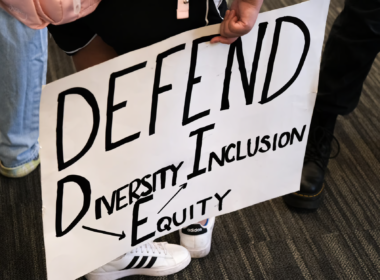SILVER SPRING, MARYLAND — This November, voters in the eastern U.S. state of Maryland will decide whether to uphold a state law giving some undocumented immigrants tuition breaks at state-run universities and community colleges.
Maryland could become the 12th state in the nation to offer undocumented immigrants lower tuition for higher education.
There are at least 11 million illegal immigrants in the United States. In June, President Barack Obama issued an Executive Order allowing many who are under 30 to remain and work in the United States temporarily.
American dream on hold
Ivette Roman is one of those people impacted by the presidential decree. Born in Peru, she’s one of thousands of immigrants who were brought to the U.S. illegally by their parents. She grew up in Maryland and, as a high school graduate with honors, was looking forward to attending a university in the state.
“I was super excited,” Roman says. “I was like ‘Yes! I am finally going to college and pursue my dream.'”
But that dream is on hold for now. Roman’s status as an undocumented immigrant means she’s not eligible for same lower tuition rates at state-run colleges and universities as other Maryland residents.
“I was just devastated,” she says. “I was saying ‘What am I going to do?’ I tried looking for other ways to pay for it and I was not going to give up easily. It is everything that I have ever wanted, is to go to college.”
In-state tuition
Now, immigrant rights groups are urging Maryland voters to say yes to a plan offering in-state tuition for illegal immigrants. It’s a referendum on a law passed by the state legislature last year.
Maryland’s “Dream Act” is tougher than similar laws in 11 other states, says state legislator Anne Kaiser. “We have made our law even tougher to say to people, ‘This is just going to the most deserving kids, who have worked hard and played by the rules, and just want an opportunity for an in-state education.'”
If voters approve, undocumented immigrants will receive in-state tuition if they attend a community college for two years before transferring to a four-year state college or university. Parents would have to pay state income taxes for five years and plan to become permanent residents.
Unjust rewards?
But the initiative faces opposition.
“It rewards law-breaking. It invites future law-breaking and it is fundamentally unfair to those who have played by the rules,” says Kristen Williamson, with the Federation for American Immigration Reform.
The group says some 3,000 illegal immigrants would immediately become eligible for in-state tuition if the law is approved.
“Having an incentive like in-state tuition will only invite more illegal immigration into the state,” Williamson says. “And that means that Marylanders aren’t necessarily going to get a return on their investment because these illegal aliens are not eligible to work in the country permanently.”
For now, Ivette Roman can obtain a renewable two-year work permit to stay in the country without fear of deportation. She and other young immigrants hope Maryland’s Dream Act will provide a path to a college education, rewarding career and, eventually, U.S. citizenship.








